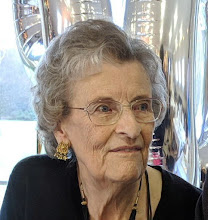I had the unhappy experience recently of having to stand by and watch the paramedics spend half an hour trying to revive a sick old man of 89, whose heart and breathing had stopped, but whose brain was still giving out an electrical signal. I knew that he had agreed with his GP that his hospital notes should carry the notation DNR, or “do not resuscitate”. It was his wish, in which his family supported him, knowing that resuscitation would be likely to leave him worse off than before.
But it seems that here in the UK, unless there is a letter from a doctor written within the previous two weeks, stating that the patient need not be resuscitated, the paramedics are legally obliged to continue trying, until not only the heartbeat and breathing have stopped, but the last electrical signal from the brain as well. If they have had no success after a certain time, they must take him to hospital where doctors can make the decision.
Is there no way to avoid this happening? I can understand the reason for such safeguards, but it seems unnecessarily distressing at an already painful time. If he had been in hospital they would have let him go, but it had been his wish to remain at home. Or if his GP had been sent for instead of the paramedics, he could have been left in peace and dignity. It is something to think about, if you are preparing for the death of someone you know. Here is a good framework to work with on this and related issues; I believe it originated in the British Medical Journal.
Principles of a good death
- To know when death is coming, and to understand what can be expected
- To be able to retain control of what happens
- To be afforded dignity and privacy
- To have control over pain relief and other symptom control
- To have choice and control over where death occurs (at home or elsewhere)
- To have access to information and expertise of whatever kind is necessary To have access to any spiritual or emotional support required
- To have access to hospice care in any location, not only in hospital
- To have control over who is present and who shares the end
- To be able to issue advance directives which ensure wishes are respected
- To have time to say goodbye, and control over other aspects of timing
- To be able to leave when it is time to go, and not to have life prolonged pointlessly

[Edited 06.01.08 - I wrote this piece to replace the two previous pieces, at a time when I had decided to delete them as too personal. I have now decided to restore them as the truer versions, but I am leaving this in place too. It has some interest as an exercise in writing about one event in two different ways.]





No comments:
Post a Comment